A Year in Review: The Most Memorable Moments of 2014
Menino was laid to rest, Meb became a symbol of resilience, and we all did the Ice Bucket Challenge.

Monday, April 21, 2014 – Boston Marathon Men’s Winner, Meb Keflezighi, of the USA. (Photo: Jeremiah Robinson / Mayor’s Office)
The Rise of Meb
It was a cathartic, emotionally charged moment when Meb Keflezighi came bounding down Boylston Street one year after the Marathon bombings to claim the crown, the first American to do so in more than 30 years. And it became clear immediately just how much the honor meant to him. He’d run with the names of victims written on his bib, and would later say he considered his victory a gift to the city. “The Bostonians never said congratulations, really—they just said thank you,” he told us in 2016. “To have them say thank you means a lot to me.” While he’s since hung up his shoes for good, he remains very much a part of the Marathon to this day, and served as 2019’s grand marshal.

(AP Photo/Richard Drew, File)
A Sanctuary Is Born
Long before the Abolish ICE movement took hold, in 2014 the Boston City Council took a major step limiting the city’s cooperation with federal officials and passed what it called the Trust Act. It ended the city’s participation in the federal Secure Communities program and was designed to sever links between the BPD and Immigration and Customs Enforcement. It wasn’t perfect, given that it didn’t fully shield the city’s immigrants from persecution, and it didn’t even technically make us a “sanctuary city.” As has become clear in recent years, it left plenty of connective tissue between ICE and BPD intact: The ACLU has raised alarms about what it calls a “school to deportation pipeline” in Boston Schools, and up until October of this year, when WBUR obtained documents outlining the partnership, the BPD still had an ICE “Task Force Officer.” But it was a first step among many in a conversation that is still ongoing.
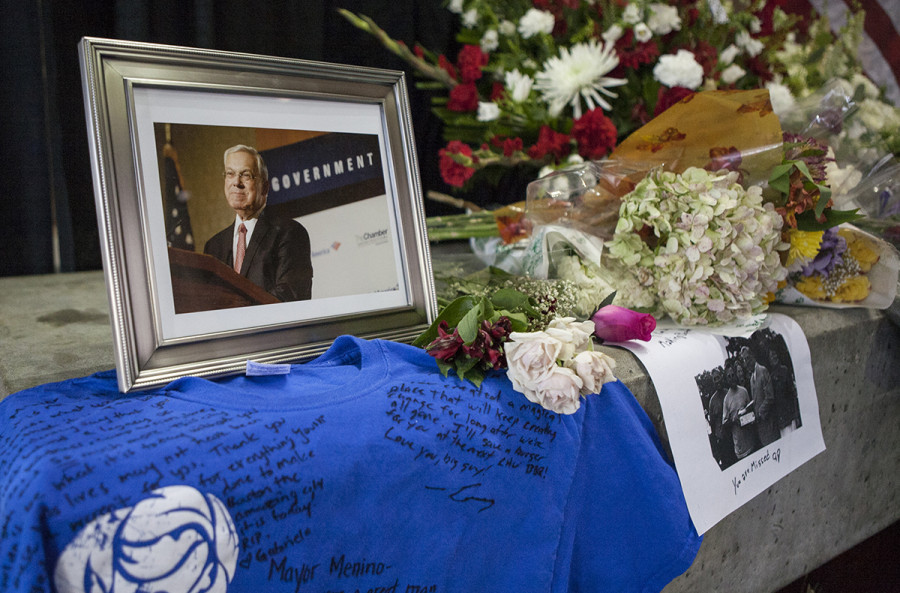
Photo by Olga Khvan
The Mourning of Menino
It was hard to imagine a Boston without Tom Menino. But then he left city hall in the hands of his successor, Marty Walsh, and inside of a year, he was gone. It was a somber occasion when Boston said goodbye to its longest-serving mayor, who’d succumbed to cancer after a quarter-century in office. But it was more than that. It was a changing of the guard for a city that had been led through major transformation in Menino’s shadow: the Big Dig, the Boston Miracle, the dawn of tech, and on and on. Mayor Walsh, inheriting a city that had bounced back from the 1990s, which saw residents fleeing for the suburbs and become one of the hottest real estate markets in the nation, summed it up in his remarks at a funeral in Menino’s home neighborhood of Hyde Park: “He dedicated his life to giving us a reason to stay.”
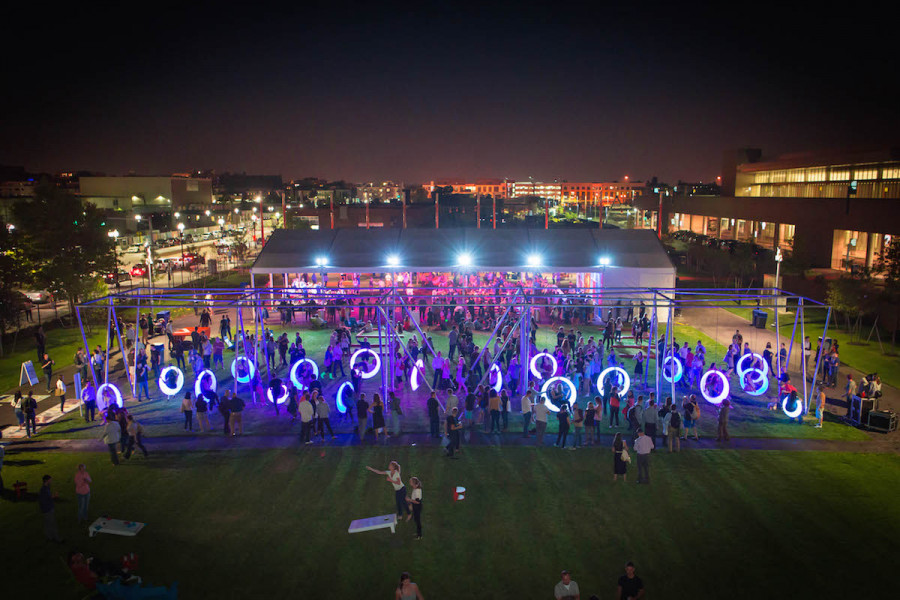
Photo provided
Swinging into the Future
Remember when you first saw those light-up swings in that patch of lawn next to the convention center? Back then, the Seaport wasn’t half the problematic bougie mecca it is today, and the promise of the trendy outdoor hang sesh had not yet fully come into focus, with the beer garden boom still a few years away. The Lawn on D was a pop-up and an outdoor beer garden before we’d fully embraced the concepts, and it helped inspire a new generation of interactive and Insta-friendly public art in the city. Whether you love it or avoid it at all costs is up to you, but there’s no doubt it was ahead of its time.

Photo by Alex Lau
Tragedy on Beacon Street
It was a ferocious fire, fueled by powerful winds whipping across the Charles River, sending thick black smoke howling through Back Bay and creating a hellish inferno in a Beacon Street brownstone that just wouldn’t go out. In the chaos, firefighter Michael Kennedy and Lt. Edward Walsh were killed, the first BFD deaths at the scene of a fire since 2007. Later, investigators would find a host of issues to blame for the tragedy, among them insufficient training for fires in high winds, a lack of sprinkler systems, and inadequate access to water. Firefighters in 2016 said they had already seen positive changes in training protocols, which they hope will make the job safer for the first responders who follow in their footsteps.
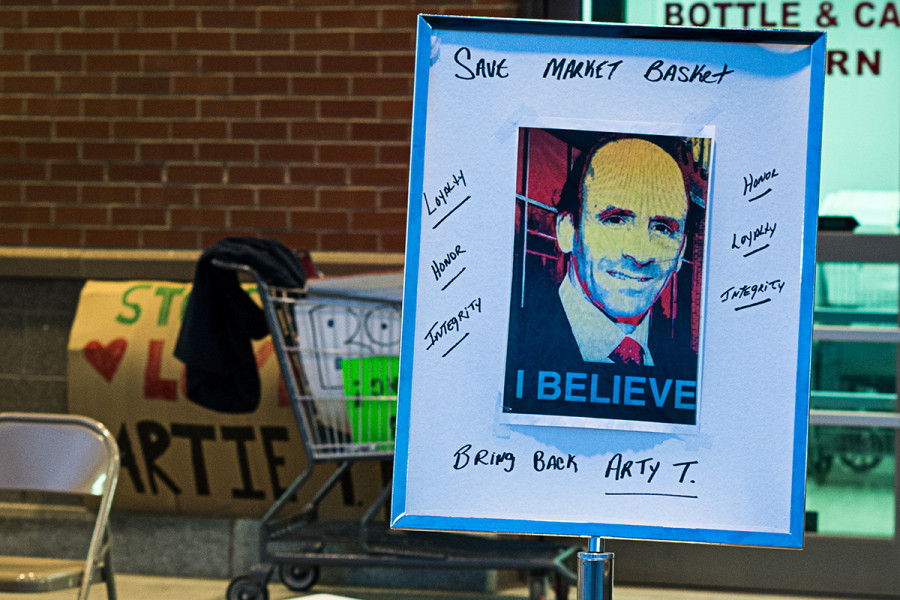
Val D’Aquila / Flickr
The Market Basket Moment
Hundreds of workers walking off the job… for their boss? The historic Market Basket protest in support of ousted co-owner Arthur T. Demoulas captured national attention in 2014 in part because the concept was so unusual, but really it foretold a broader, if more traditional, trend in collective action for Massachusetts workers. The 40-day standoff paved the way for other historic walkouts, including at Stop and Shop, as well as strikes or threats of strikes at Boston’s colleges and hotels. It also foreshadowed this year’s Wayfair walkout, a move that was not about pay or working conditions, but about employees banding together to hold their bosses accountable. The takeaway from the Market Basket affair wasn’t that it was weird, it was that it demonstrated how much power Massachusetts workers really have.
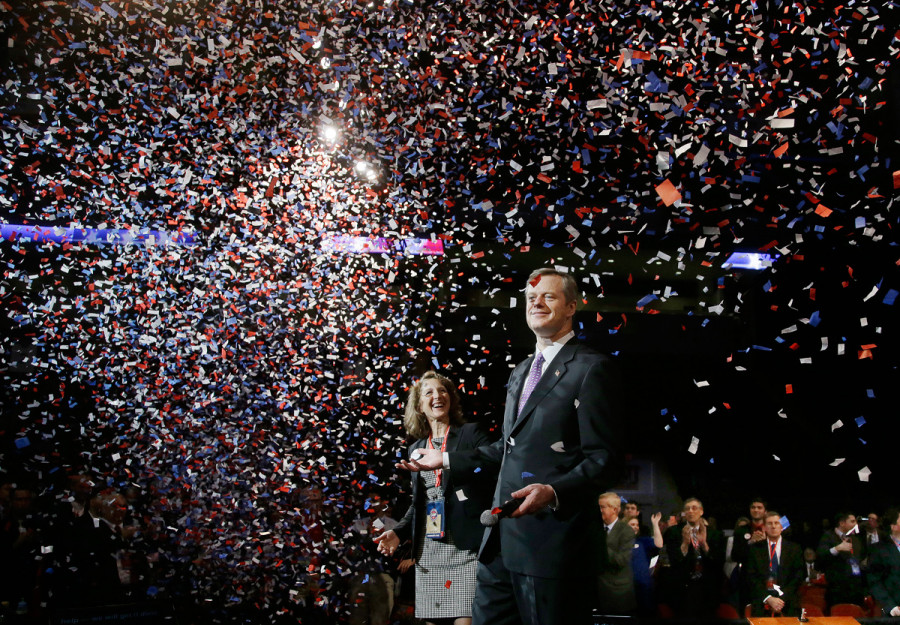
Photo via AP
“Bipartisan” Baker Wins the Day
Before he settled into his role as America’s favorite governor, Charlie Baker had to convince bluer-than-blue state voters to let a Republican take the reins. Promising “bipartisan balance on Beacon Hill” while campaigning, Baker swore to take his role leading a Democrat-heavy state seriously, especially one that had only narrowly chosen him over Democrat Martha Coakley. That pledge seems to have guided his approach to the office ever since, as he forged a legendarily friendly relationship with Democrat Marty Walsh and continued to stake out a moderate position as MassGOP went full MAGA. How successful has it been? His approval rating is currently around 73 percent, and even as the state is sending progressive crusaders to Washington, his next statewide Democratic opponent, Jay Gonzalez, didn’t stand a chance. Baker won re-election last year by 33 points. The question now, is, as his party continues to leave him behind, what’s he still doing with that R next to his name?
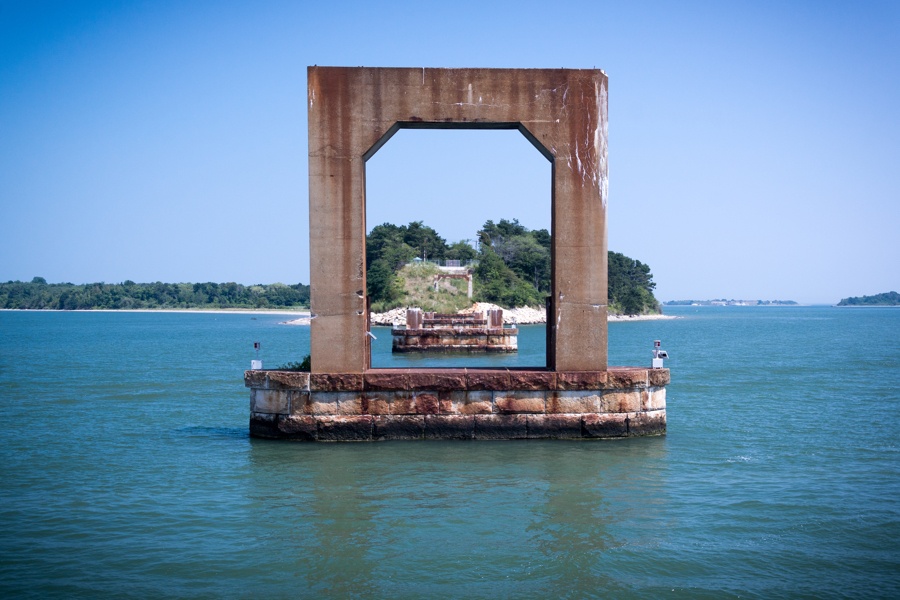
Photo by Eric Kilby via Flickr/Creative Commons
The Long Island Bridge Catastrophe
It’s caused five years of headaches for the Walsh administration, not to mention the legion of needy people it impacted, and remains one of the most vexing problems for the addiction recovery community as it tries to salvage what was lost. But the trouble on Long Island came suddenly, as hundreds of people experiencing homelessness and addiction were evacuated without warning one afternoon in October amid fears the dilapidated span would collapse. Walsh, who toured the site this fall, has pledged to rebuild the bridge and bring the recovery facility back to life, but has yet to win over his neighbors in Quincy. The project would require land access in that city, but Mayor Thomas P. Koch opposes the effort over concerns about traffic and the possibility the land might fall prey to developers. Meanwhile, the pylons that once held up the 3,500-foot bridge remain in place—they’re reportedly in good enough condition to once again carry the link to the island, if only officials can figure out how to make it happen.
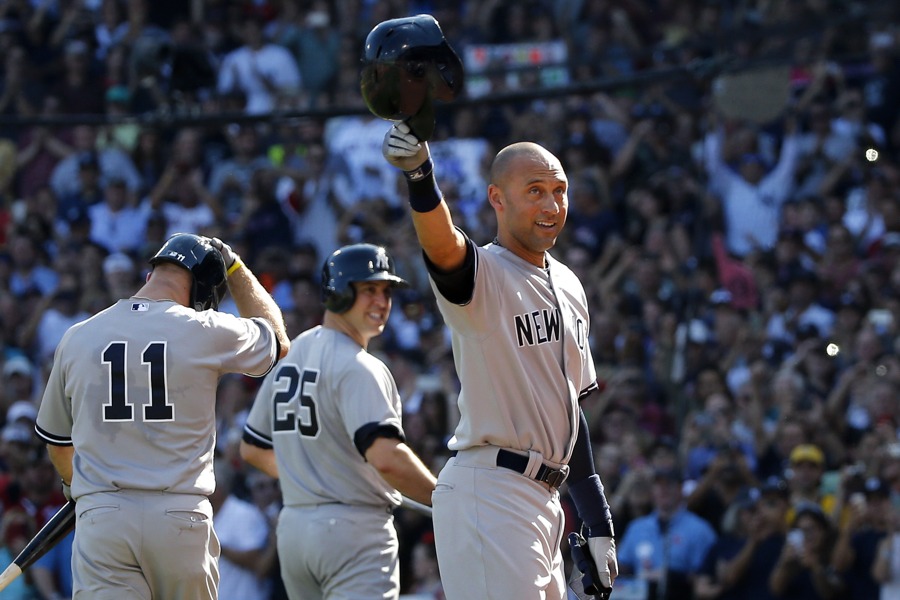
AP Photo/Elise Amendola
A Classy Goodbye for Derek Jeter
It’ll never not be fun to yell “Yankees Suck” while rubbing shoulders with thousands of rowdy Sox fans. But on a sunny day in September, we put the rivalry behind to see a legend off the field. Derek Jeter, long a pariah in Boston, said he owed it to the fans and the haters alike to show up one more time in Boston, and so he played his very last at bat in enemy territory. But as his hometown paper, the New York Times, put it at the time, “He was not an enemy this weekend.” Rather than chucking Fenway franks onto the field, the crowd gave him a standing ovation. A crew of Boston sports legends, including Carl Yastrzemski and Bobby Orr, came to see him off. With a couple post-curse championships under our belts, the big picture was clear: We may not be getting Jeter tattoos any time soon, but the man deserved a respectful goodbye, and that’s what he got.
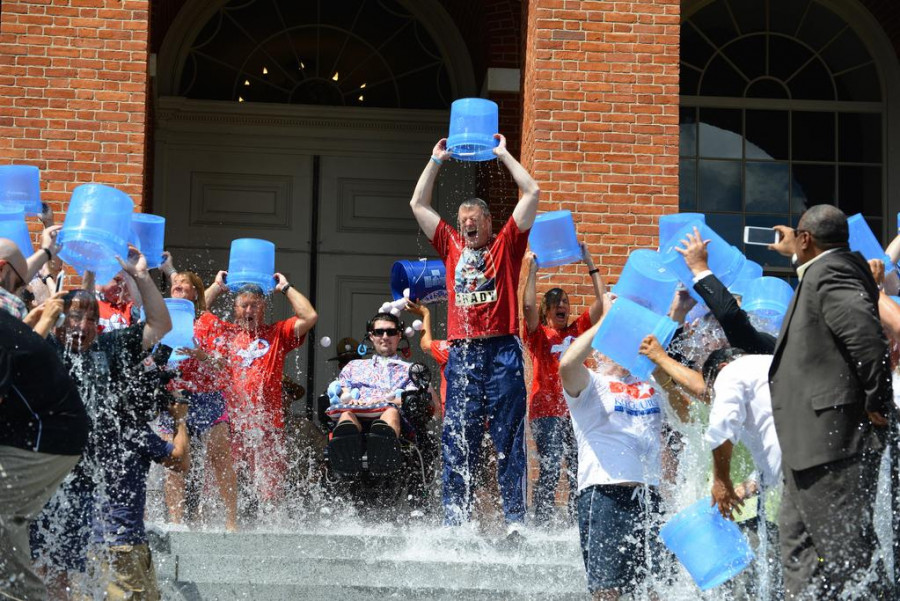
Photo via Gov. Charlie Baker
Ice, Ice Bucket
If you lived through the mid-2010s, there’s very little chance you didn’t have a gallon or so of chilled water splashed over your head, for a cause, at some point. Charlie Baker did it. Marty Walsh did it (and invited Donald Trump to do the same, leading the not-yet-president to spit, “Get a real mayor“). Your office/Little League team/book club probably did it, too. The Ice Bucket Challenge, promoted by Boston College baseball star and ALS advocate Pete Frates, was everywhere in 2014, and by the time the frenzy waned, it had raised some $115 million for life-saving research into the condition. It never quite caught on the same way after 2015, but the Frates family has continued to carry the torch—er, bucket—for the practice, which remains a lighthearted way to spread awareness about the rare and often devastating disease, and will be remembered as one of the most indisputably good phenomena the decade’s viral video culture ever produced.

